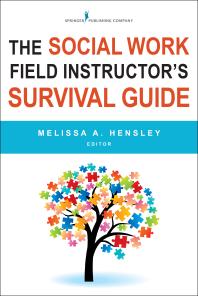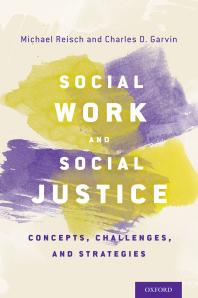Federal Legislation
-
Congress.gov"[T]he official website for U.S. federal legislative information." Search options include All Legislation, Committee Reports, and more. (See the About section for information about the source types.)
- Explore a Bill on Congress.gov (Video - without sound)
-
U.S. Code"The United States Code is a compilation of most public laws currently in force, organized by subject matter. " (Further details)
Office of the Law Revision Office. -
Congressional Research Service Reports: Search"The Congressional Research Service (CRS) serves as shared staff to congressional committees and Members of Congress. CRS experts assist at every stage of the legislative process — from the early considerations that precede bill drafting, through committee hearings and floor debate, to the oversight of enacted laws and various agency activities."
-
GovTrack.usA website focused on U.S. government transparency whose goal is to help "ordinary citizens find and track bills in the U.S. Congress and understand their representatives’ legislative record."
-
govinfoAccess official publications from all three branches of the U. S. Federal Government through a variety of tools. Has extensive Help and Tutorial features. From the U.S. Government Publishing Office.
State Legislation
-
Massachusetts Legislation
- Search Mass.gov for information about the issue.
- General Laws
-
West Virginia Legislature
- Search WV.gov for information about the issue
- West Virginia Code
-
National Survey of State Laws"This database version of Rich Leiter's National Survey of State Laws provides an overall view of some of the most sought-after and controversial legal topics in the United States. The new 8th edition, along with the 7th, 6th and 5th editions are included in database format, which allows users to compare the same laws as they existed in 2005, 2008, 2015 and 2019."
HeinOnline
- Act - "A measure passed by one or both Chambers. Usually refers to a measure passed by both Chambers in identical format and signed into law by the president or passed over a veto." (U.S. Senate Glossary Terms).
- Bill - "Bills are prefixed with H.R. when introduced in the House and S. when introduced in the Senate, and they are followed by a number based on the order in which they are introduced. The vast majority of legislative proposals are in the form of bills. Bills deal with domestic and foreign issues and programs, and they also appropriate money to various government agencies and programs.
Public bills pertain to matters that affect the general public or classes of citizens, while private bills affect just certain individuals and organizations.
A private bill provides benefits to specified individuals (including corporate bodies). Individuals sometimes request relief through private legislation when administrative or legal remedies are exhausted. Many private bills deal with immigration–granting citizenship or permanent residency. Private bills may also be introduced for individuals who have claims against the government, veterans' benefits claims, claims for military decorations, or taxation problems. The title of a private bill usually begins with the phrase, "For the relief of. . . ." if a private bill is passed in identical form by both houses of Congress and is signed by the president, it becomes a private law.
When bills are passed in identical form by both Chambers of Congress and signed by the president (or repassed by Congress over a presidential veto), they become laws." (U.S. Senate)
- Resolution – "Legislation introduced in either the House of Representatives or the Senate, but unlike bills they may be limited in effect to the Congress or one of its chambers. The three types of resolutions are joint resolutions, simple resolutions and concurrent resolutions" (Library of Congress)
- Joint Resolution - "Legislation considered to have the same effect as a bill. Unlike simple and concurrent resolutions, a joint resolution requires the approval of the President. Also, a joint resolution may be used to propose amendments to the Constitution. A joint resolution originating in the House of Representatives is designated by the letters “H.J. Res.” followed by a number and joint resolutions introduced in the Senate as “S.J. Res.” followed by a number. For example: S.J. Res. 2" (Library of Congress)
- Simple Resolution – "Legislation that relates to the operations of a single chamber or expresses the collective opinion of that chamber on public policy issues. A simple resolution originating in the House of Representatives is designated by the letters “H. Res.” followed by a number and simple resolutions introduced in the Senate as “S. Res.” followed by a number. For Example: H. Res. 10" (Library of Congress)
- Concurrent Resolution – "Legislation that relates to the operations of Congress, including both chambers, or express the collective opinion of both chambers on public policy issues. A concurrent resolution originating in the House of Representatives is designated by the letters “H. Con. Res.” followed by a number and concurrent resolutions introduced in the Senate as “S. Con. Res.” followed by a number. For example: H. Con. Res. 64" (Library of Congress)
- Joint Resolution - "Legislation considered to have the same effect as a bill. Unlike simple and concurrent resolutions, a joint resolution requires the approval of the President. Also, a joint resolution may be used to propose amendments to the Constitution. A joint resolution originating in the House of Representatives is designated by the letters “H.J. Res.” followed by a number and joint resolutions introduced in the Senate as “S.J. Res.” followed by a number. For example: S.J. Res. 2" (Library of Congress)
-
Private Law – "A private bill passed by both the House of Representatives and the Senate in identical form that has been enacted into law. Private laws only affect a private individual or individuals. A Private law is designated by the abbreviation “Pvt. L.” followed by the Congress number (e.g. 104), and the number of the law. For example: Pvt. L. 104-1" (Library of Congress)
Public Law – "A bill or joint resolution passed by both the House of Representatives and the Senate in identical form that has been enacted into law. Public laws affect the entire nation. A Public law is designated by the abbreviation 'Pub. L.' followed by the Congress number (e.g. 108), and the number of the law. For example: Pub. L. 108-211 (Library of Congress)
- Statutes - "Also known as acts, are laws passed by a legislature. Federal statutes are laws enacted by Congress with (and in some circumstances without) the approval of the President" (Library of Congress).
- Statutes at Large - "A publication of the laws and concurrent resolutions enacted during each Congress, arranged in chronological order. Also includes presidential proclamations" (U.S. Senate Glossary Terms).
- United States Code - "A compilation of most public laws currently in force, organized by subject matter. When a law has been amended by another law, the U.S. Code reflects this change. The U.S. Code collates the original law with subsequent amendments, and it deletes language that has later been repealed or superseded" (U.S. Senate: The United States Code).
Background Information on the Topics
-
CQ Researcher This link opens in a new windowIn-depth coverage of current events, providing full-length articles that include an overview, historical background, chronology, pro/con feature, plus resources for additional research.
Peer-Reviewed Articles
-
ProQuest Central This link opens in a new windowA multidisciplinary resource providing the largest aggregated full-text database in the market today totaling more than12,665 titles - with over 9,745 titles in full text. Covers more than 160 subject areas, including business and economics, health and medical, news and world affairs, technology, social sciences and more. Provides over 400 full-text U.S., Canadian and international newspapers; nearly 30,000 full-text dissertations in the areas of business, psychology, physical sciences, health, education; and nearly 9,000 market reports for business information for 43 industries in 40 countries.
Government Documents/Law Review Articles
-
HeinOnline This link opens in a new windowContains more than 150 million pages and 160,000 titles of legal history and government documents in a fully searchable, image-based format.
Note: AND, OR, NOT must be entered in all uppercase.
Newspapers
-
Boston Globe (1980 - present) This link opens in a new window
-
ProQuest US Newsstream This link opens in a new windowNational and local newspapers, newswires, blogs, and news sites' transcripts including U.S. major dailies, CNN, Meet the Press and hundred's more. Current coverage and back files will vary.
-
Wall Street Journal This link opens in a new window
-
Washington Post (1996-present) This link opens in a new window
Federal Resources
-
govinfoAccess official publications from all three branches of the U. S. Federal Government through a variety of tools. Has extensive Help and Tutorial features. From the U.S. Government Publishing Office.
State-Specific Resources








